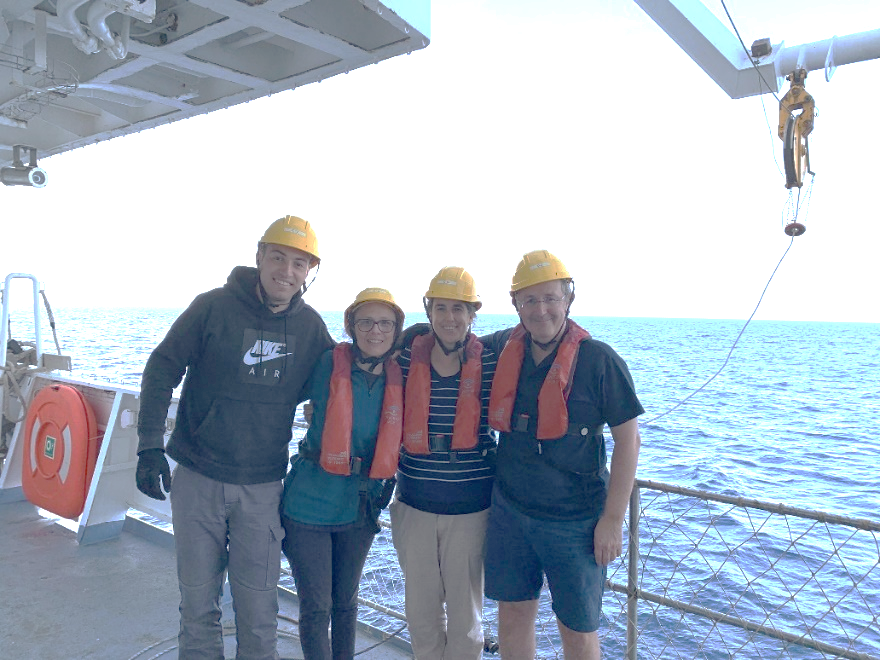
Ph.D. Student at the National Institute of Oceanography, Israel Oceanographic and Limnological Research (IOLR) in collaboration with the Morris Kahn Marine Research Station at the department of Marine Biology, Leon H. Charney School of Marine Sciences, University of Haifa, Israel.
Ximena Dubinsky Velasquez
"My name is Ximena Dubinsky Velasquez, and I am a Marine Biologist (MSc). I graduated from the University Jorge Tadeo Lozano in Bogota, Colombia. I moved to Israel 11 year ago and I completed my master’s degree in zoology at the Tel Aviv University. Currently, I am working on my PhD at the National Institute of Oceanography, Israel Oceanographic and Limnological Research (IOLR) in collaboration with the Morris Kahn Marine Research Station at the department of Marine Biology, Leon H. Charney School of Marine Sciences, University of Haifa, Israel.
I was very interested to study a group of marine animals with a great potential for research but relatively understudied in the Israeli Mediterranean Sea (IMS). This led me to be fascinated to study marine copepods and looking for a researcher that had the same passion for marine zooplankton. Today, I am a PhD student at the Zooplankton Ecology Lab led by Dr. Tamar Guy Haim, who gave me the great opportunity to become part of her group. Our lab focuses on marine zooplankton biodiversity and ecophysiology, using morphological taxonomy, molecular and imaging tools, as well as field and lab experiments. My research project is in collaboration with Dr. Dalit Meron and Prof. Dan Tchernov from Morris Kahn Marine Research Station.
My research is focused on microbiome and ecophysiology of marine pelagic copepods under environmental and anthropogenic stressors. Marine copepods have been neglected for decades in the IMS and there have been no studies on copepod taxonomy, ecology, and biology for the past 50 years. This region has been suffering from progressive warming, bioinvasions, pollution and coastal development that can alter copepod’s biodiversity, ecological functioning, and their microbial interactions. For this reason, the IMS is an ideal environment to study how pelagic copepods cope with environmental changes and anthropogenic stressors, providing new and important information on the dynamics of copepods and their microbiome. Recently I had the amazing opportunity to participate in the international cross-Mediterranean PERLE (Pelagic Ecosystem Response to dense water formation in the Levant Experiment) cruise where we sampled zooplankton along multiple basins and gradients along the Mediterranean Sea. We collected samples and data that will allow us to establish an excellent dataset of copepod microbiome to understand inter-basin scale processes.
I am a passionate person that loves marine science and in my spare time I love to go sailing and diving, and to spend as much time as I can with my husband and our dog.”
Received Award An Encouragement Of Mediterranean Sea Research Scholarship To Students Holding Advanced Degrees, Year A 5771


